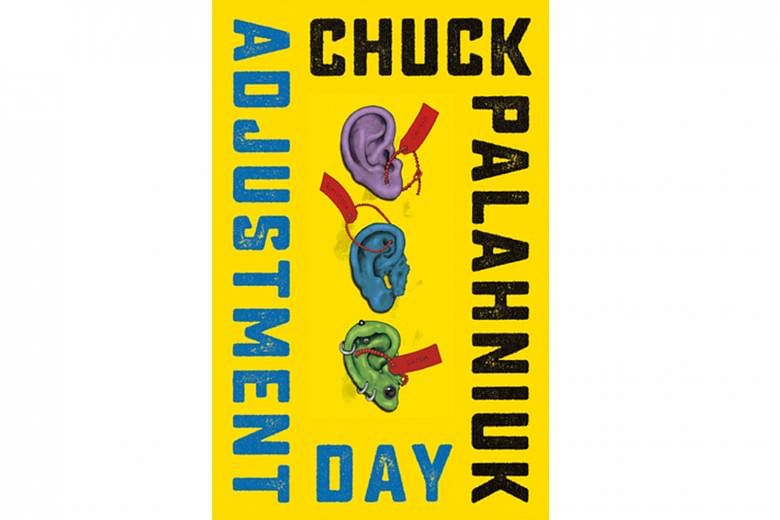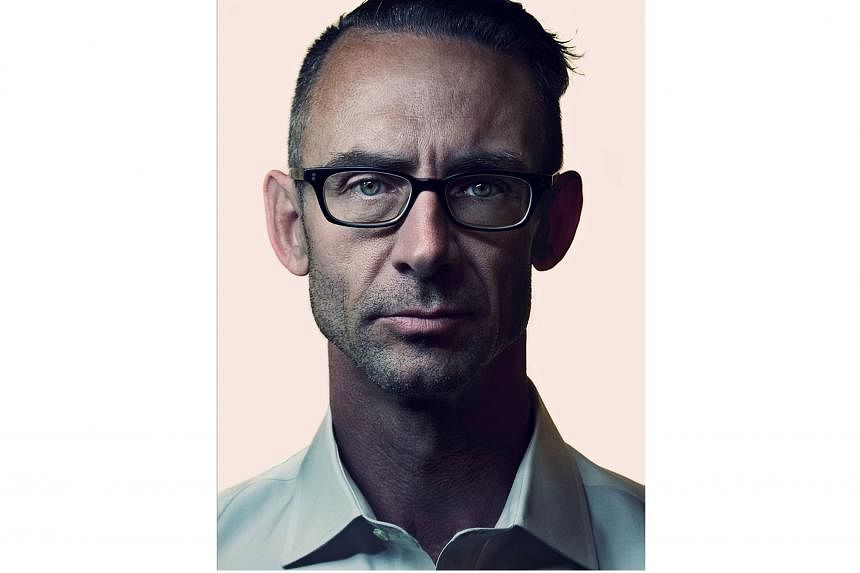FICTION
ADJUSTMENT DAY
By Chuck Palahniuk
W. W. Norton & Company/ Paperback/ 329 pages/ $27.66/
Books Kinokuniya
3 stars
What would happen if everyone really went back to where they came from, as racists are wont to taunt?
It would go terribly, posits Chuck Palahniuk's first novel in four years, in which the American cult author imagines a future United States where tribalism is taken to its extreme.
He sets his mind once more to the matter of the "youth bulge", in which an excess of hot-blooded and disenfranchised young men proceed to unseat the social order.
The government has decided to thin the ranks of their youth by shipping them off to die abroad in war. But the menfolk of America have other plans in mind.
Inspired by a mysterious manifesto by a man named Talbott Reynolds, scores of men plot a nationwide coup on Adjustment Day, assassinating all those named on a list - politicians, academics, journalists and liberal snowflakes - and cutting off their ears as trophies.
These men come to hold the reins of power in the new order, in which the US is divided into three states - Caucasia for whites, Blacktopia for blacks and Gaysia for gays and lesbians. Everyone else gets shipped back to where they came from - Hispanics to Mexico or Latin America, Asians to Asia, and so on.
Like all Palahniuk's work, Adjustment Day lies in the shadow of his 1996 cult novel Fight Club - even more so than its predecessors, because it too deals with the consequences of having too many angry, unfulfilled men around.
It lampshades this by having various characters repeatedly break the first rule of Fight Club (which is not to talk about Fight Club). "Palahniuk," mutters Talbott dismissively. "All of his work is about castration. Castration or abortion."
Palahniuk, much like his revolutionaries, succeeds in the revolution, but loses the plot on what happens afterwards.
Caucasia descends into a Renaissance Faire backwater. Blacktopia, taking the Magical Negro stereotype to ridiculous heights, evolves into a parody of Black Panther's Wakanda. Gaysia becomes a Handmaid's Tale-esque police state of forced in-vitro reproduction, albeit one where the police are in drag.
It is a pity, because Palahniuk still has his moments of comic genius. In one scene, young women in Caucasia are obliged by law to balance crowns of lit candles on their heads - based on some ancient Scandinavian tradition - and so wander around town blithely setting awnings and umbrellas on fire.
The book afforded an opportunity to dissect real-world concerns of toxic masculinity, social inequality and racism, but this has been traded in for a ludicrous thought experiment.
If you liked this, read: Vernon God Little by DBC Pierre (Faber & Faber, 2003, $19.14, Books Kinokuniya), a Man Booker prize-winning black comedy about a Texan teenager who ends up on death row after being implicated in a mass shooting at his high school.



